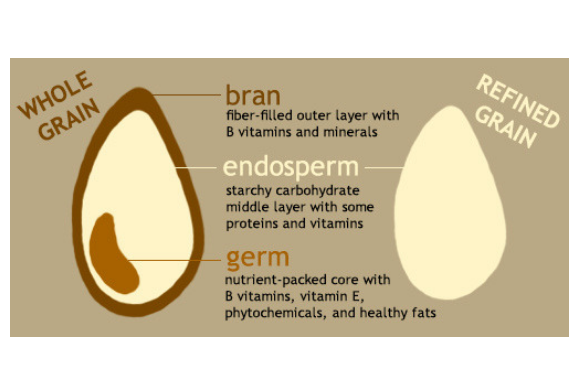Carbohydrates are one of the main sources of energy for the body and the preferred source of energy for the brain. There are three types of carbohydrates: sugars, starches and fiber. Starches and fiber are formed due to sugars being combined into more complex structures. Grains are one of the main sources of starches.
Examples of Starches
All grains are starchy, including rice, oats, quinoa, bulgur, wheat, rye, barley, amaranth, millet, sorghum, triticale, wild rice and cornmeal.
These grains may be refined by removing the bran and germ to increase their shelf life, and they are often used to make baked goods, including bread, crackers, pasta and tortillas. As a result, the grains themselves and the products made are considered starches or starchy foods.
Most Nutritious Types
Whole grains and foods made with whole grains are the most nutritious options for starchy grains. Most importantly, whole grains contain more fiber and more vitamins. Refined grains and may help lower your risk for obesity, diabetes, digestive issues, high cholesterol and heart disease.
Look for foods that contain 100 percent whole grains, or that list a whole grain at the beginning of the ingredients list. If the first word in the ingredient is ‘enriched’, the product is not whole grain. Don’t rely on the packaging as this may mislead you with marketing hype of a health claim just to make a sell.
Recommended Intake
The U.S. Department of Agriculture (USDA) recommends consuming approximately 6 servings of starchy foods or grains per day. Furthermore, at least half of these servings coming from whole grains. This is a general recommendation for healthy individuals maintaining current weight. Specific recommendations are determined based on the caloric needs, health status and goals.
- What is your assessment of carbs making people fat?
- If you restrict or avoid carbs, what is your reason?


